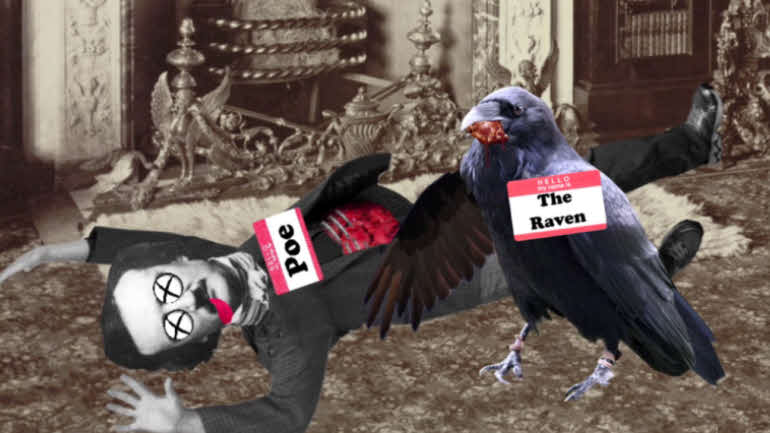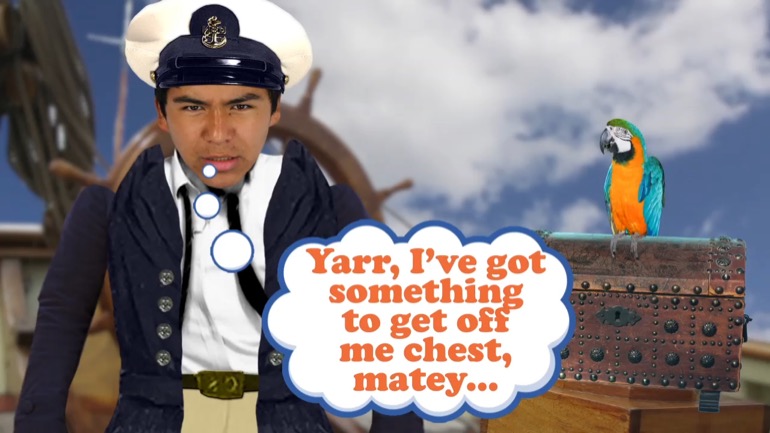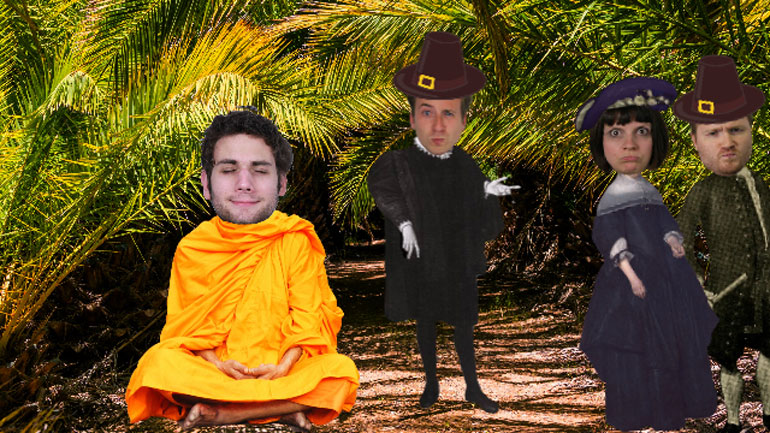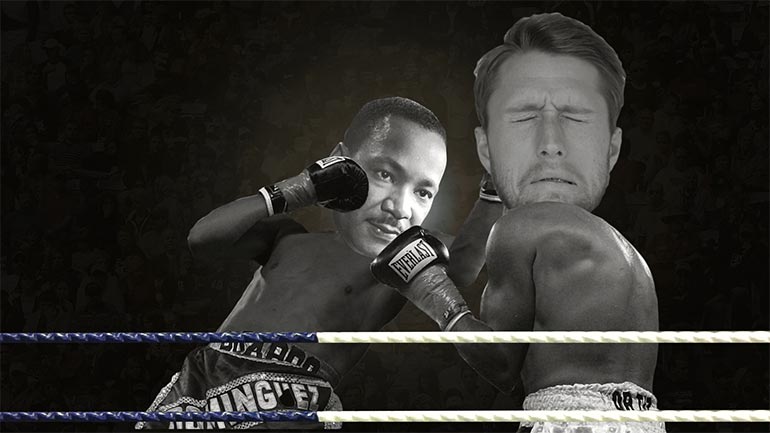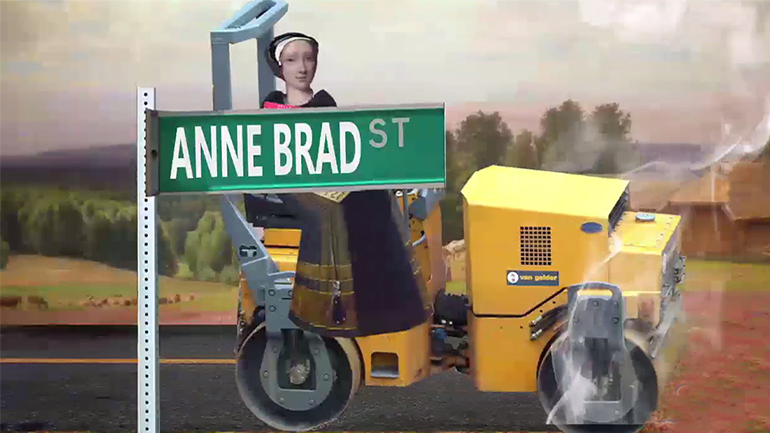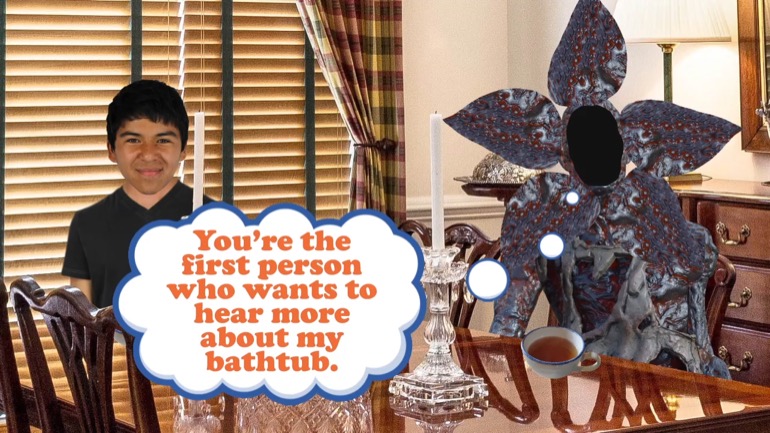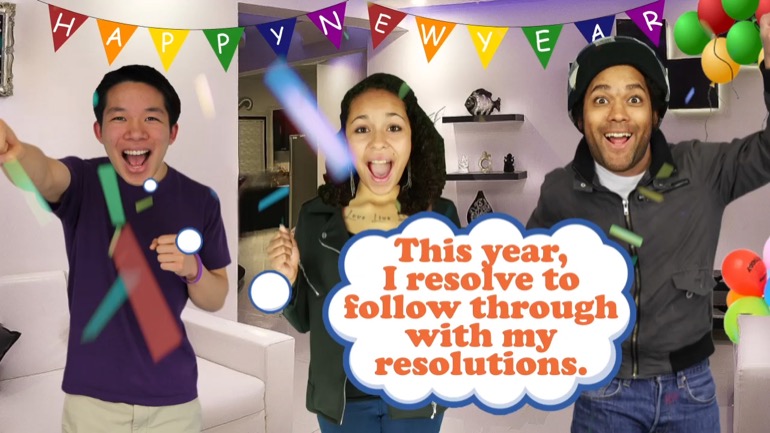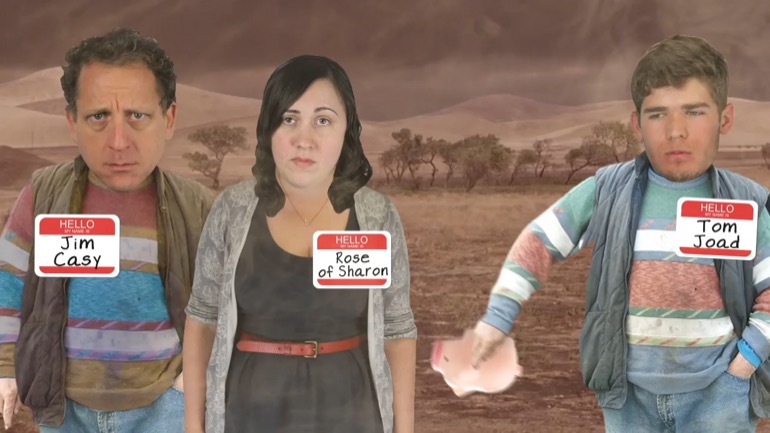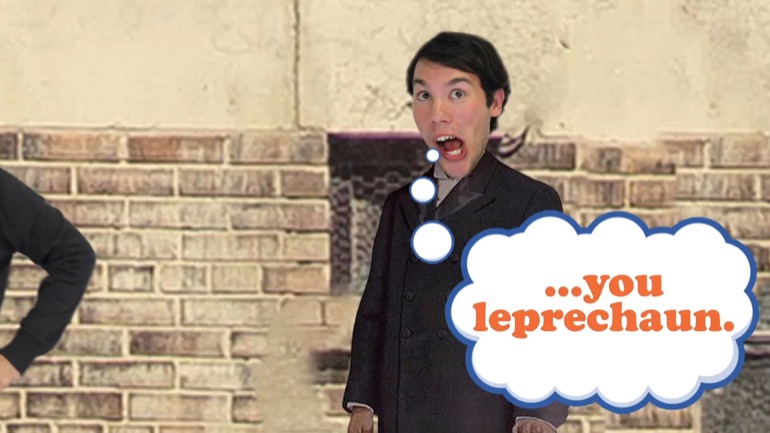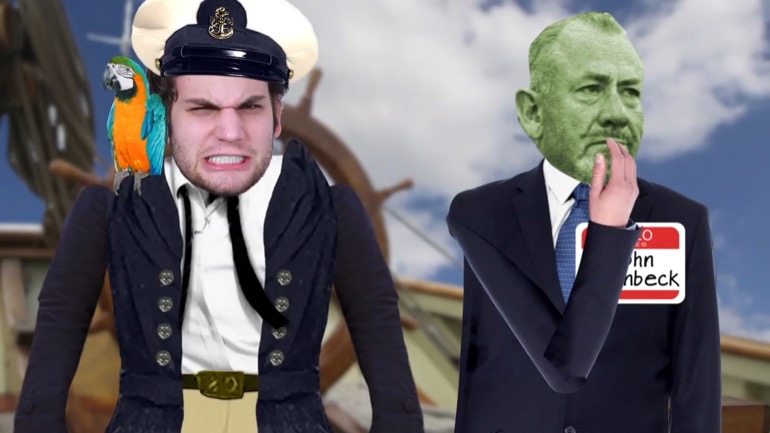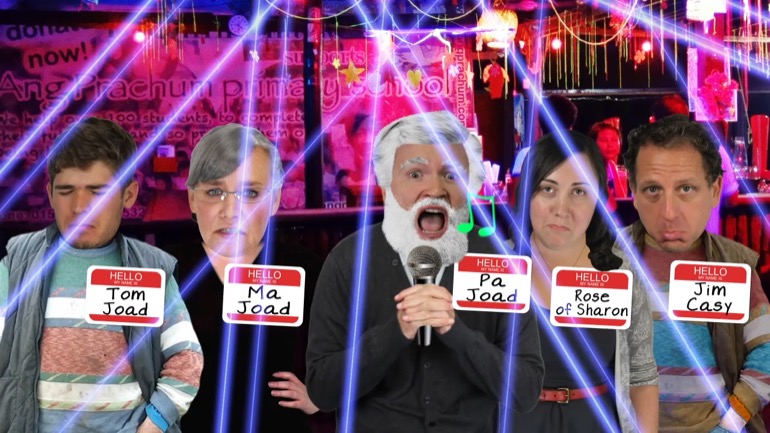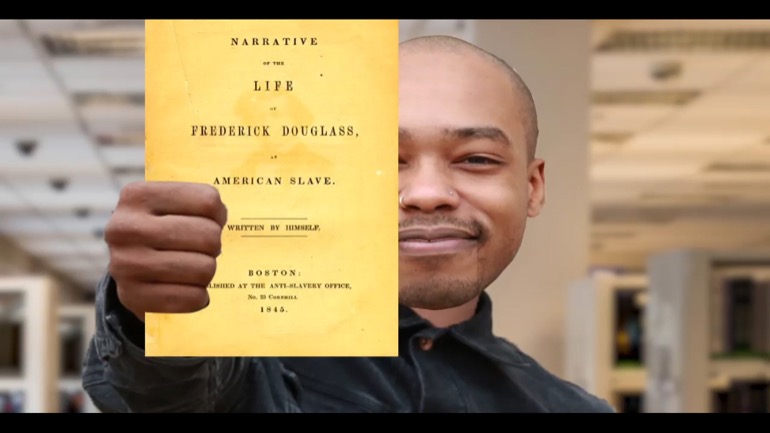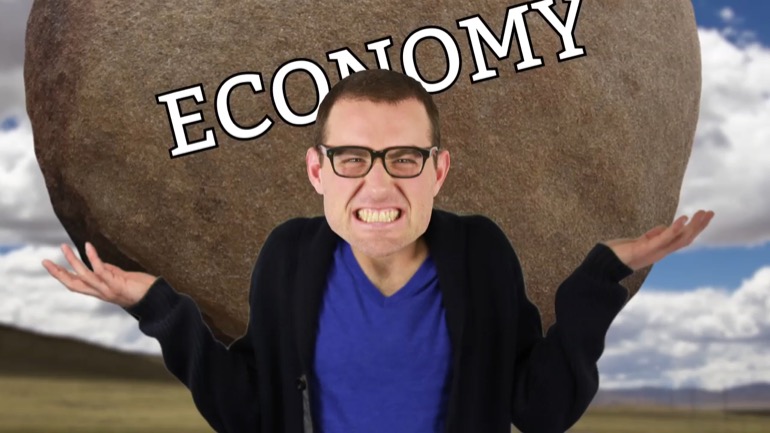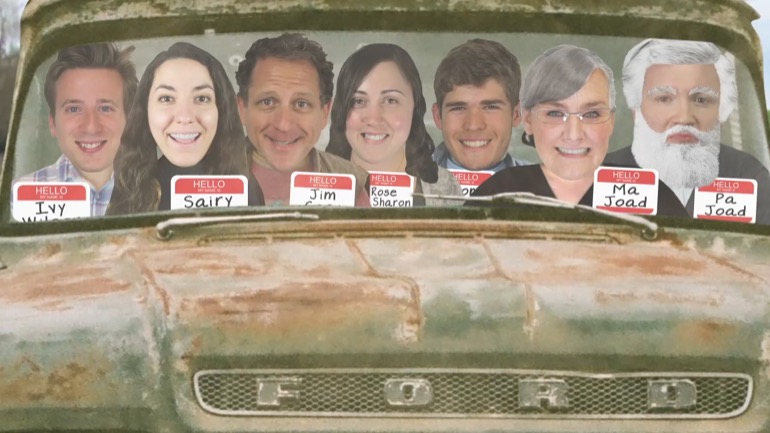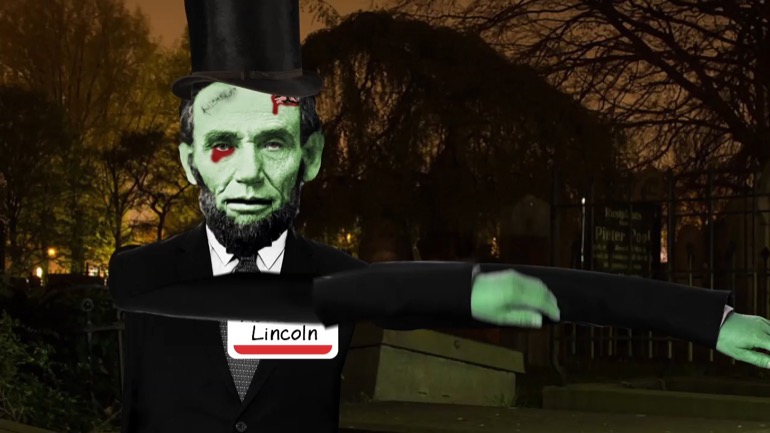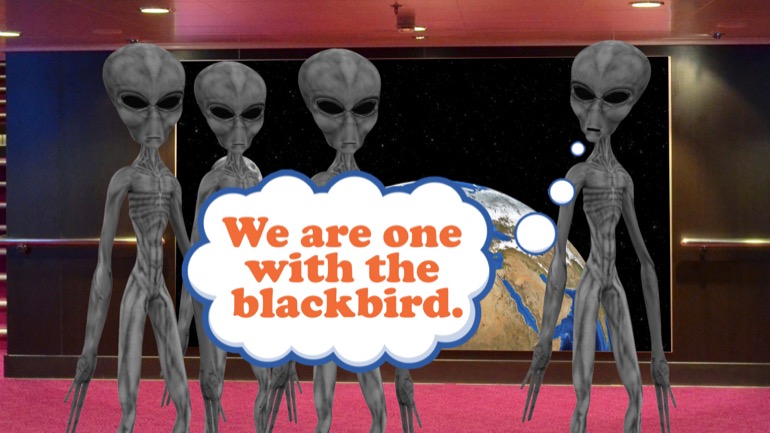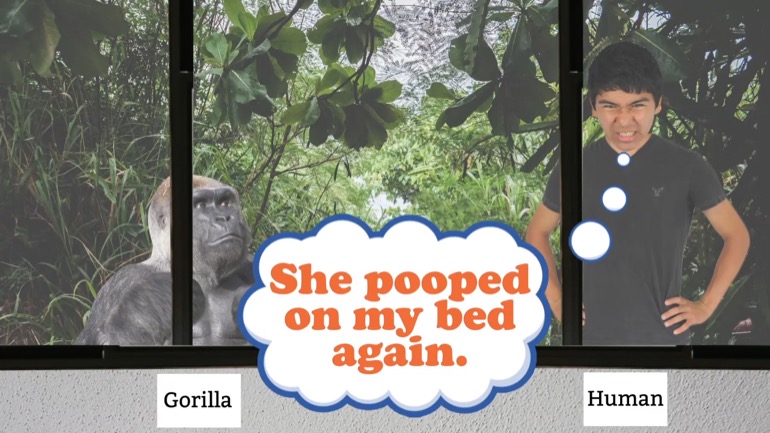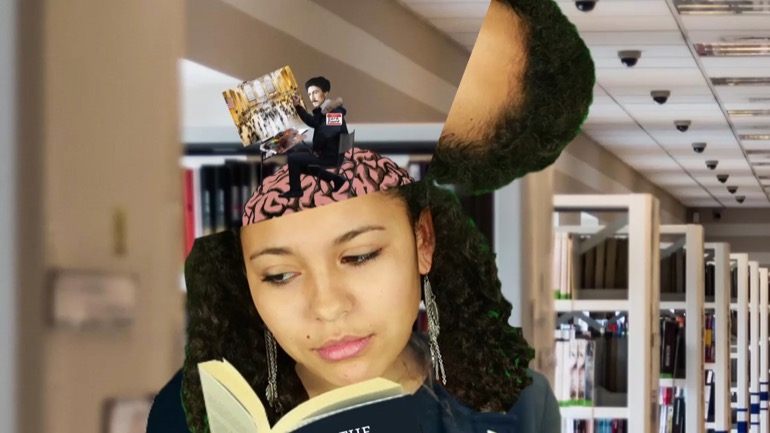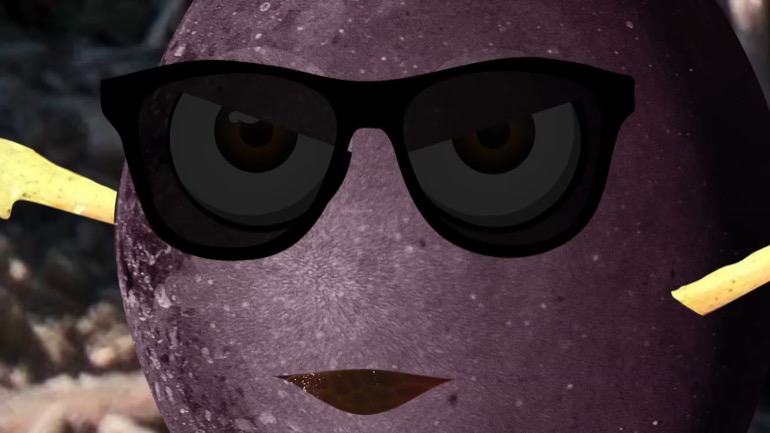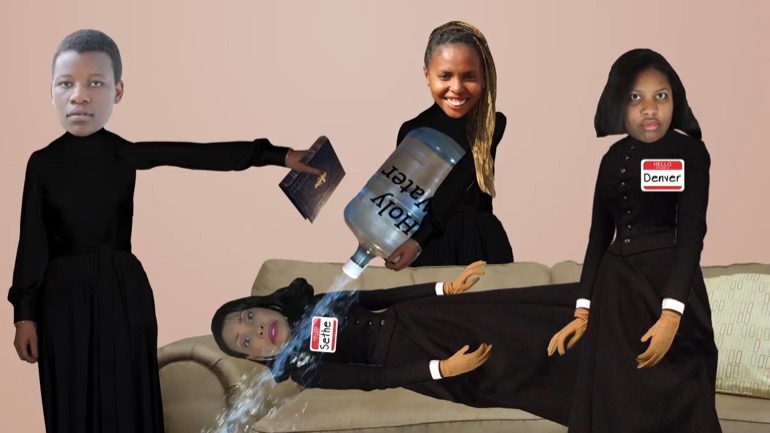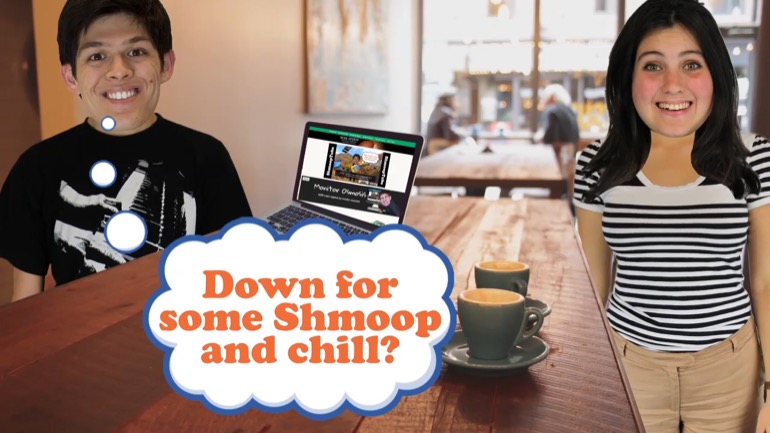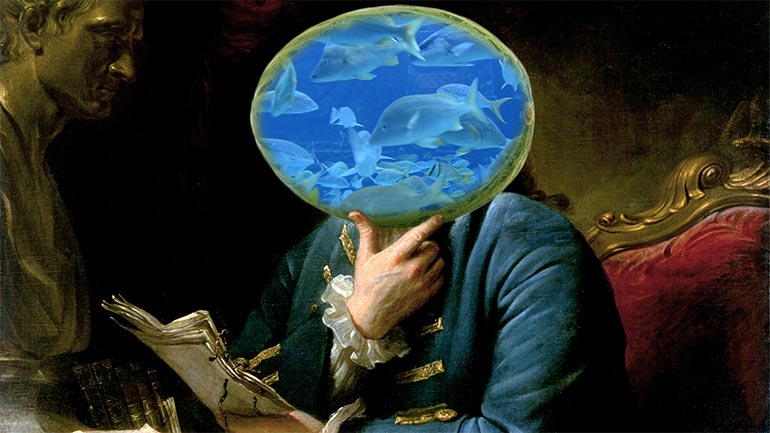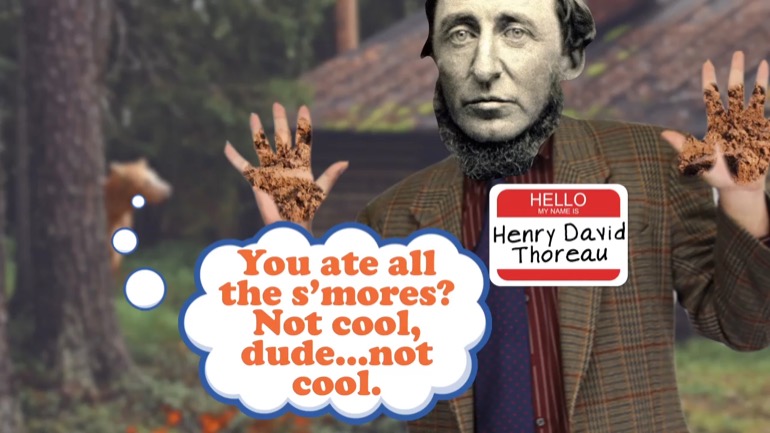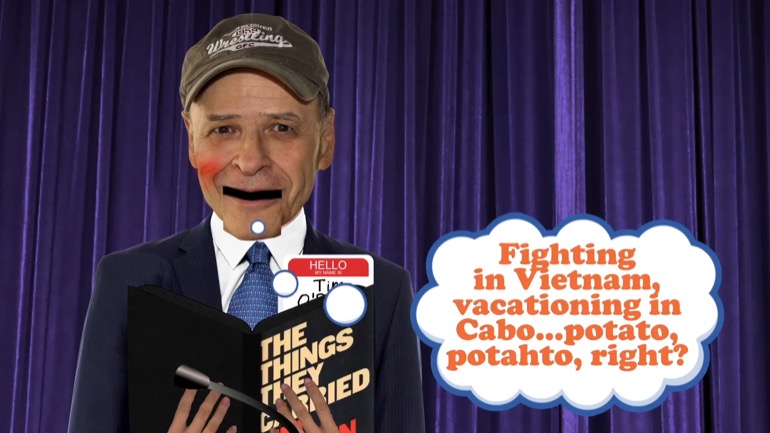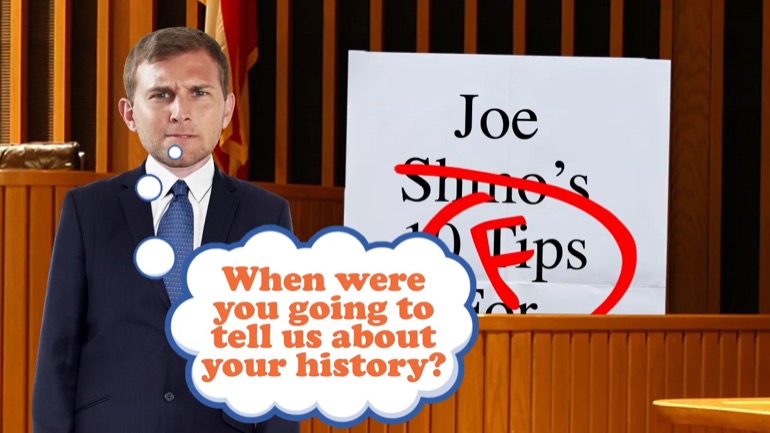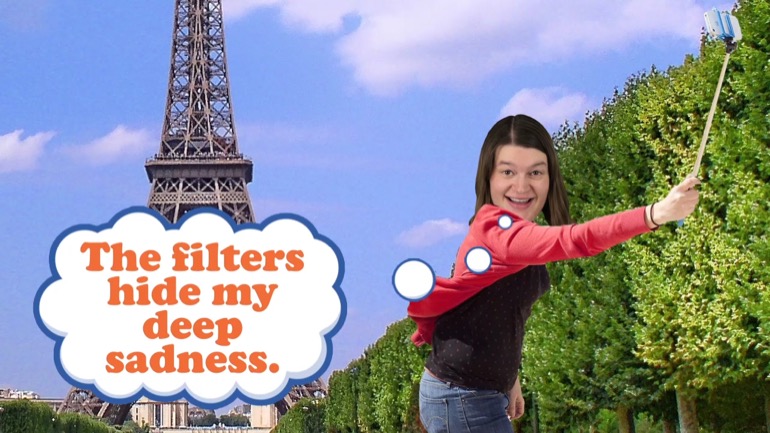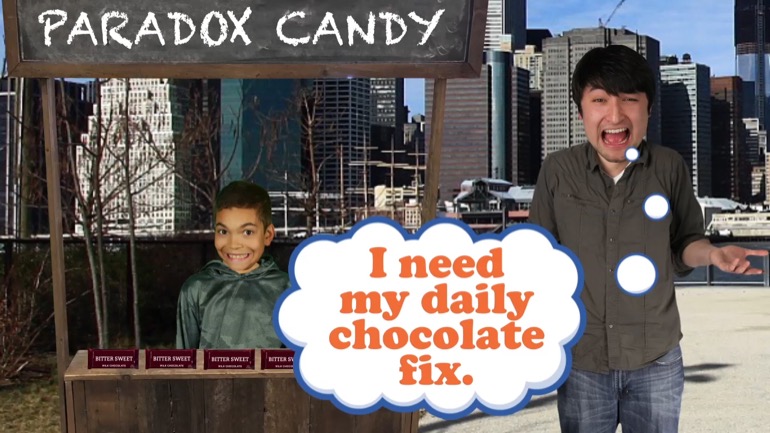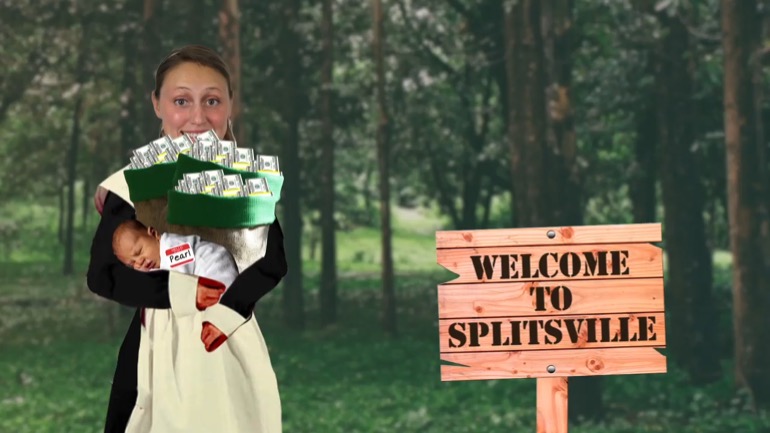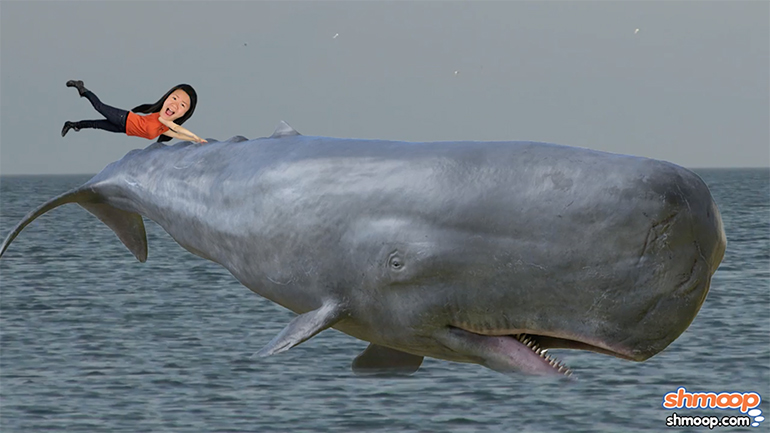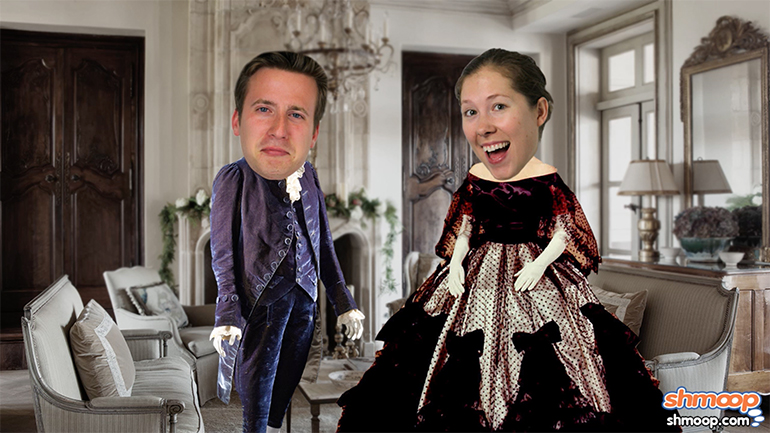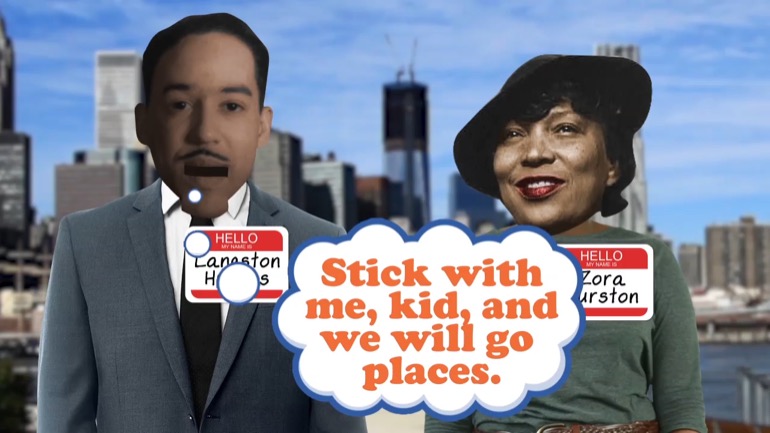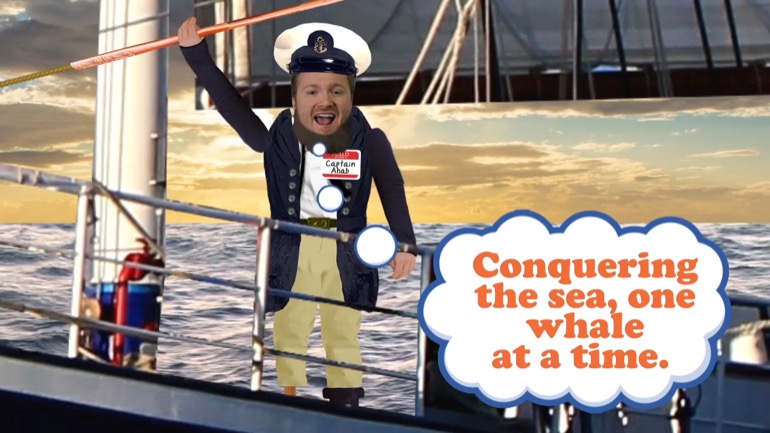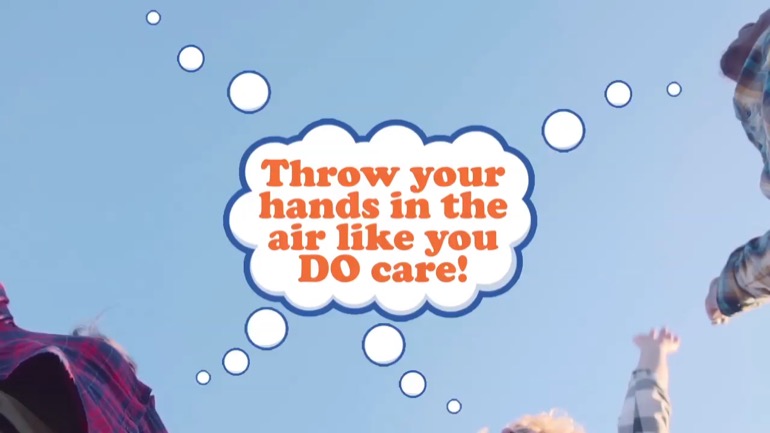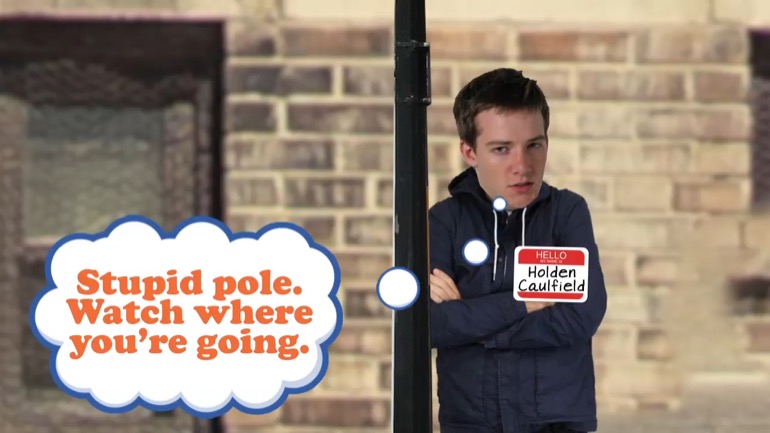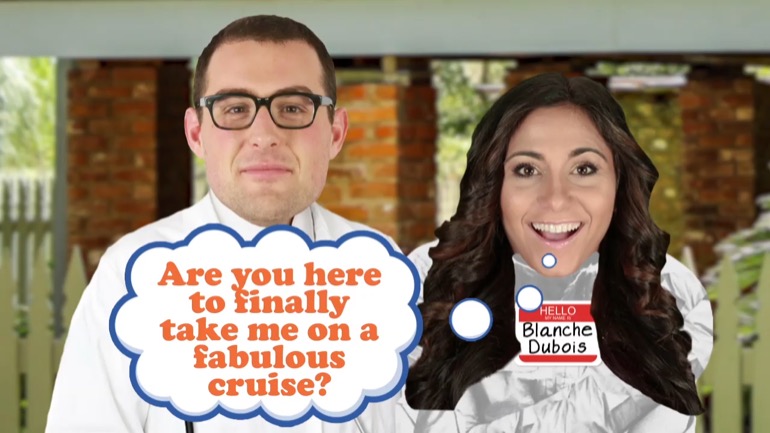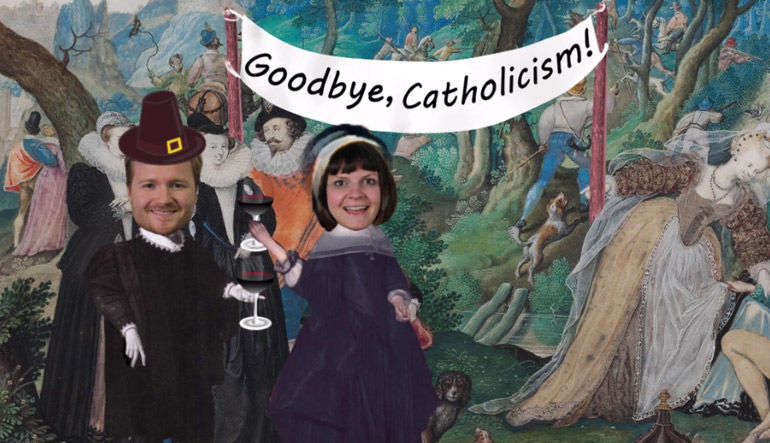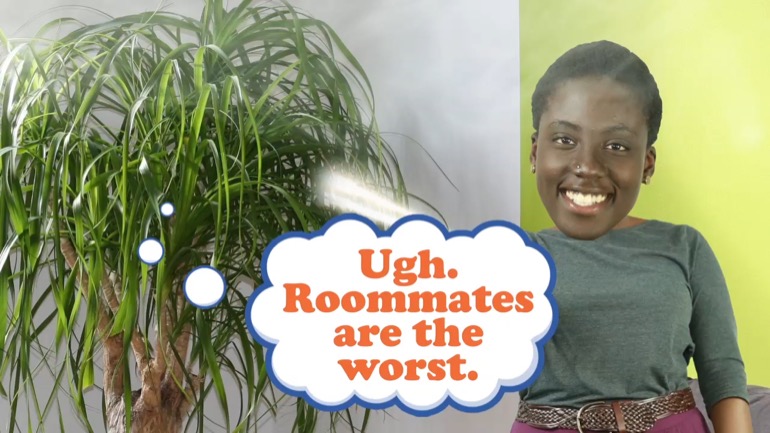ShmoopTube
Where Monty Python meets your 10th grade teacher.
Search Thousands of Shmoop Videos
Courses Videos 906 videos
What do you get when the guy who wrote “The Raven” makes a serious effort to write in verse? Poe-try… Now, when you’ve detached your eyes f...
Incidents in the Life of a Slave Girl, abridged. Ready? Go.
Emily Dickinson: Along with Van Gogh, proof that you’re never really famous until you’re dead.
American Literature: Pre-Civil Rights Movement 6933 Views
Share It!
Description:
The Pre-Civil Rights Movement... preceded the Civil Rights Movement. (If you got that, lucky guess.) It took place prior to the mid-1950s, and was spurred by the efforts of people like James Baldwin, whose book Sonny's Blues changed the way people looked at minorities' rights. These efforts encouraged--and eventually resulted in--the desegregation of public places.
Transcript
- 00:02
pre civil rights movement.....
- 00:19
two-four-six-eight we want love no more hate non-violent protesting is [Woman protesting]
- 00:24
one of many ways that groups of people can express their frustrations or
- 00:27
discomfort with what's going on in the world around them one of the most
- 00:31
effective and well known eras protest was the civil rights movement the era
Full Transcript
- 00:36
unlike the civil left's movement which was all about pencils and desk for South [Man scribbling on paper with a pen]
- 00:41
paws the civil rights movement was a push from people who believed that
- 00:44
everyone was entitled to basic human liberties you know stuff like voting and
- 00:48
being able to sit wherever you want on a bus you may know a little something [Woman takes seat on a bus]
- 00:52
something about the civil rights movement but do you know what happened
- 00:55
to kick start it into motion well to be fair it wasn't just one thing that
- 00:59
happened it was several decades of stuff so slavery was abolished done away with
- 01:04
in 1865 with the passing of the Thirteenth Amendment to the US [13th Amendment appears]
- 01:07
Constitution neither slavery nor involuntary servitude except as a
- 01:12
punishment for crime whereof the party shall have been duly convicted shall
- 01:15
exist within the United States or any place subject to their jurisdiction
- 01:19
woohoo party time everyone's free...Not so fast as soon as slavery was given the
- 01:26
boot all of the former slaves immediately went into practicing law and
- 01:30
medicine and wait that didn't happen in reality a lot of people particularly [Doctor appears with a patient]
- 01:35
southerners weren't all that stoked that slavery had left the building and they
- 01:39
took this out on former slaves in some seriously nasty ways they basically used
- 01:44
scare tactics like the threat of being lynched or even burned alive to keep
- 01:48
former slaves from owning properties becoming involved in government or even
- 01:52
attempting to challenge segregation as it had been for years
- 01:55
in the 1880s southern states came up with what are known as Jim Crow laws [Jim Crow laws meaning appears]
- 02:00
which effectively kept segregation between black and white people in most
- 02:03
every walk of life alive and thriving by the time 1900 rolled around 35 years
- 02:09
after the 13th amendment went into effect, things were
- 02:14
still really bad for african-americans about 90% of them
- 02:17
still lived in the south where living conditions were the worst but things in
- 02:21
the north weren't a whole heck of a lot better [African-american eating dinner in a poor home]
- 02:23
northerners still treated african-americans as second-class
- 02:26
citizens who didn't have any basic rights like voting and access to equal
- 02:30
housing and employment opportunities the great migration of african-americans
- 02:33
happened around the time World War one was getting hot and heavy huge numbers
- 02:37
of former slaves rushed into the cities to take factory jobs opened up by white [Former slave appears at factory]
- 02:41
men going off to the war when the war was over though African Americans were
- 02:45
sent to the back of the bus once more so to speak World War two actually enacted
- 02:50
some positive changes for racial relations in America Adolf Hitler's
- 02:54
intense racism against the Jewish population to Germany and Europe
- 02:57
resulted in roughly 6 million Jewish people being murdered during the Second [Jewish dead bodies appear]
- 03:01
World War it doesn't get a whole lot worse than that
- 03:03
Hitler was known around the world as the Time Magazine's most vile human being in
- 03:08
existence and believe it or not his racist views weren't all that popular [Hitler telling jokes on a stage]
- 03:13
this translated into civilised Americans also coming to terms with the idea that
- 03:17
racism on the homefront wasn't such a good thing either in the 1940s through
- 03:22
the 60s many formerly colonized African and Asian countries were gaining their [African and Asian woman walk out of their prison cell]
- 03:26
independence this spurred African Americans into action in the US and got
- 03:31
people thinking about what true freedom and independence might look like for all
- 03:34
races in the nation the Cold War a non-violent war that was actually more
- 03:39
of a competitive relationship between America and the former Soviet Union to
- 03:42
have the most weapons be the first nation to walk on the moon etc also
- 03:46
helped Americans become more accepting of minority races politicians understood
- 03:50
that it would look better if America appeared to be racially tolerant America [Group of people chanting]
- 03:54
would be able to get more nations on her side if she was a place of tolerance and
- 03:58
acceptance yeah that is totally superficial but that's just kind of how
- 04:02
politics works in 1954 the monumental Brown versus Board of Education case
- 04:08
effectively desegregated American schools by law a previous case Plessy
- 04:13
versus Ferguson had allowed segregation in schools based on the concept that the
- 04:18
schools were separate but equal Shaw the court said when reviewing these facts [Judge appears]
- 04:22
during Brown separate is not equal and this ruling
- 04:25
is bunk the new ruling is that kids of all colors can go to the same schools [Judge bangs gavel]
- 04:29
case closed we talked about this case as being
- 04:32
monumental because it changed the way both white and black people in America
- 04:35
thought about race after brown and all the way up through the late 1960s
- 04:40
proponents for equal rights among races in America came together to protest [People protesting]
- 04:44
injustice and challenge the current system of politics and social relations
- 04:48
in the nation african-americans and white civil rights activists alike saw
- 04:52
that major change could be possible and they began mobilizing
- 04:56
in great numbers they fought for the right to vote equal access to public
- 05:01
facilities like lunch counters water fountains and movie theaters equal [People walking into movie theater]
- 05:05
opportunities in schools housing options and employment opportunities above all
- 05:10
though the civil rights activists fought for freedom from discrimination based on
- 05:14
a person's skin color while this notion seems simple in theory it's an issue
- 05:18
that's still a huge deal today all people over the age of 18 may have the
- 05:23
right to vote in America but the debate about whether or not rights are actually
- 05:27
equal for everyone is still a hot item on many people's minds as you might [Man's head open and inequality appears on brain]
- 05:31
imagine there are some super amazing literature music and art that came out
- 05:35
of the civil rights era there's something about social unrest that seems
- 05:38
to make people quite creative James Baldwin was an amazing figure associated
- 05:44
with the civil rights he was an African American author who wrote poetry novels
- 05:48
plays essays and more more importantly he was active in the civil rights [Baldwin protesting]
- 05:52
movement in his own ways James Baldwin born in Harlem in 1924 was the grandson
- 05:57
of a slave and the son of a single mom mom remarried a Baptist minister who
- 06:01
helped teenage James get a job as a youth minister and a church he wasn't [Baldwin appears as a church minister]
- 06:05
interested in pursuing a career in the church but James did say those three
- 06:09
years in the pulpit I didn't realize it then that is what turned me into a
- 06:13
writer really dealing with all that anguish and that despair and that beauty
- 06:17
in high school James showed off his writing skills by publishing a whole [James writing a play]
- 06:20
bunch of poems plays and short stories in the school's magazine his writing
- 06:24
career didn't immediately take off though since James had to go right to
- 06:27
work after graduation in order to help support his huge family while working [James appears at fast food restaurant window]
- 06:31
for the US Army laying railroad tracks James tasted discrimination for real he
- 06:36
was often not allowed to go into bars or restaurants with his coworkers yes because
- 06:40
he was black he moved to Greenwich Village and landed a writing fellowship
- 06:45
that allowed him to just write even though James was pursuing his passion
- 06:49
life as a gay black man in the 1940s and 50s was not all that much fun he got hit [James walking with white man]
- 06:55
with double discrimination everywhere he went
- 06:58
James worked on getting some short stories and essays published before he
- 07:01
won another fellowship and hightailed it off to Paris during his time in the city [James by the Eiffel Tower]
- 07:06
of love James was able to view his personal history and that of African
- 07:10
Americans in a different way since he was separated from it he said once I
- 07:15
found myself on the other side of the ocean
- 07:17
I see where I came from very clearly I am the grandson of a slave and I am a
- 07:22
writer I must deal with both in 1953 James semi autobiography go tell it on [Go Tell it on the Mountain book appears]
- 07:28
the mountain was published and people ate it up he wrote about the real
- 07:32
struggle of growing up in Harlem in a way that no other author had done
- 07:36
Baldwin won even more Awards that funded more writing projects like
- 07:40
Giovanni's Room a story that focused on the topics of race and homosexuality in
- 07:44
1955 when the book was published people were not used to reading about such [Person picks up book]
- 07:48
topics and the book received mixed reviews James essay work also helped to
- 07:53
secure him a spot as a notable name in the civil rights movement
- 07:56
James writing in all forms gave him a powerful voice of protest and activism
- 08:01
why don't we take a closer look at one of Baldwin's books Sonny's blues it's a
- 08:06
really dark story but an important one that you're not likely to forget after [Person picks up Sonny's Blues book]
- 08:10
reading it Sonny is a heroin addict from Harlem who gets busted for selling drugs
- 08:14
and ends up doing time his older brother the narrator of the story reads about
- 08:19
Sonny's arrests in the paper and feels bad but doesn't do anything about it [Sonny arrested on front of newspaper]
- 08:23
the narrator loses his little girl and contacts Sonny who moves in with his
- 08:27
brother and family Sonny is a gifted piano player and his brother credits his
- 08:31
wild musician lifestyle and other musicians we're getting Sonny into [Sonny partying with musician]
- 08:35
drugs in the first place which Sonny argues is ridiculous
- 08:38
the two come to terms with each other and life when Sonny plays a show at a club
- 08:42
and the narrator has an aha moment of getting what Sonny was telling him about
- 08:46
life being tough and all... one of the things that makes this such an awesome
- 08:50
story about race is that Baldwin never comes out and whacks us over the head [Hand with hammer whacks girl on the head]
- 08:53
with it all of the major themes addiction family suffering have ties to
- 08:58
race or racism Sonny admittedly feels out of control in his own life he doesn't
- 09:03
have a lot of hope for a positive future as a young poor black man in Harlem and
- 09:07
he turns to heroin it makes you feel in control sometimes you've got to have
- 09:13
that feeling Sonny saw drugs as his only coping mechanism and it's not like he [Sonny with a syringe and man hands him a spoon]
- 09:18
was alone lots of people in desperate situations
- 09:20
find solace in using drugs and alcohol the way Baldwin writes about Sonny
- 09:25
situation makes the reader understand that life for black people in 1950s
- 09:29
Harlem is no picnic he personifies the setting of busted up housing projects
- 09:34
and hopeless people showing us how segregation tears down the black [Page turns over from book]
- 09:38
community we hit a hundred and tenth Street and started rolling up Lenox
- 09:42
Avenue and I known this Avenue all my life but it seemed to me again as it had
- 09:46
seemed on the day I'd first heard about Sonny's trouble filled with a hidden
- 09:50
Menace which was its very breath of life yeah Harlem doesn't exactly sound
- 09:55
inviting the racism becomes more blatant when the narrator's mother tells him the [Narrator and Mum appear together]
- 09:58
story about how a car full of white men killed her brother her sadness and
- 10:03
terror are obvious when she explains how her husband handled the situation till
- 10:07
the day he died he weren't sure but that every white man he saw was the man that
- 10:11
killed his brother boom this murder only perpetuated the existing culture of fear
- 10:17
that African Americans in the early 1950s were living in and while Sonny's
- 10:21
blues might be fictional work the parallels to real life are all too real
- 10:25
this passage also connects family to the overarching concept of race there is a [Passage in novel appears]
- 10:29
personal history of violence against the family by white people this cuts even
- 10:34
deeper than the bigger picture of racism that happened against black people as an [Scissors cuts a picture of African-American family]
- 10:38
entire race because of the incident with her brother-in-law the narrator's mom
- 10:41
tells him you've got to hold on to your brother and don't let him fall no matter
- 10:45
what it looks like is happening and no matter how evil you gets with him she
- 10:49
might not come right out and say it but Ma expects the narrator to protect her
- 10:52
baby Sonny from the evils white men cause because that's what mothers do [Mum appears with bright shining light behind her]
- 10:56
the theme of suffering is tied back to race as well every single character in
- 11:00
this story suffers in some way and a lot of it has to do with their race the
- 11:04
narrator sees his young students suffering in the same way he and his
- 11:07
brother did these boys now were living as we'd been living then they were
- 11:12
growing up with a rush and their heads bumped abruptly against the low ceiling
- 11:16
of their actual possibilities for young men in Harlem in the 50s there weren't a [Young men together in a street in Harlem]
- 11:20
ton of options they were broke black and held down by society who didn't want
- 11:25
them Sonny expresses not just his own suffering but is the voice of pain for
- 11:30
many you don't know how much I needed to hear from you I wanted to write you many
- 11:34
a time but I dug how much I must have hurt you us and so I didn't write but
- 11:37
now I feel like a man who's been trying to climb out of some deep real deep and
- 11:41
funky hole and just saw the sun up there outside I got to get outside it's a
- 11:47
vicious cycle Sonny was suffering so he turned to drugs the drugs got him locked [Sonny running down a street and police car appears]
- 11:51
up which caused his family grief and Sonny was too ashamed to get into touch with
- 11:55
his family when he needed them the most seriously heavy stuff and Baldwin really [Baldwin typing at his desk]
- 11:59
knew how to take real-life suffering and turn it into fiction while keeping the
- 12:03
important essence of realism in place this was how he could be an activist
- 12:07
just by evoking the power of words words can be weapons of change if you know how [Man holding dictionary protesting]
- 12:12
to wield them properly and James Baldwin sure had the gift of word wielding at his
- 12:16
fingertips with words no one has to get physically hurt though their effects can
- 12:20
be even stronger than guns or knives or bazookas though the civil rights [Soldier fires bazooka]
- 12:24
movement has changed we still see remnants of it in modern society as long
- 12:28
as people feel oppressed by society there will be struggle and not that fun
- 12:32
hey I think I might like you do you like me how do we do this kind of struggle
- 12:37
though heartbreak is certainly no laughing matter [Man in bed crying]
- 12:40
sorry just got dumped not everyone can handle a strong independent protester
Related Videos
“Happy Hunger Games!” Or not. Katniss’s Hunger Games experiences left a not-so-happy effect on her. This video will prompt you to ponder if...
Who's really the crazy one in One Flew Over the Cuckoo's Nest? Shmoop amongst yourselves.
Sure, Edgar Allan Poe was dark and moody and filled with teenage angst, but what else does he have in common with the Twilight series?
¿Por que es el 'Gran' Gatsby tan gran? ¿Porque de su nombre peculiar? ¿Porque de el misterio que le rodea? Se ha discutido esta pregunta por muc...
Would would the world be like without books? Ray Bradbury tackles that question—and many more— in Fahrenheit 451. Go ahead; read it on your Kin...
